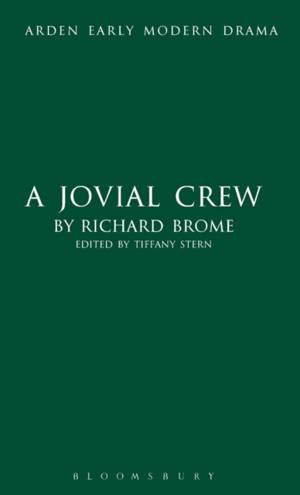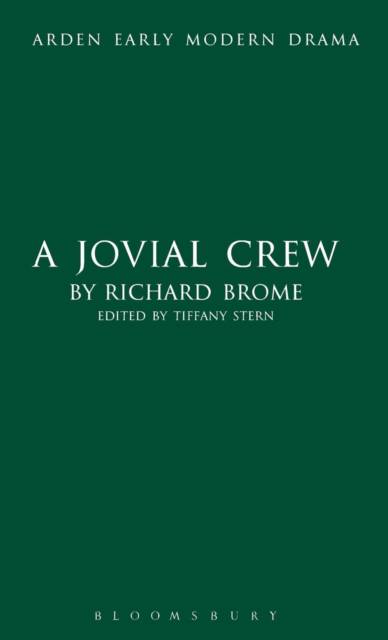
Bedankt voor het vertrouwen het afgelopen jaar! Om jou te bedanken bieden we GRATIS verzending (in België) aan op alles gedurende de hele maand januari.
- Afhalen na 1 uur in een winkel met voorraad
- In januari gratis thuislevering in België
- Ruim aanbod met 7 miljoen producten
Bedankt voor het vertrouwen het afgelopen jaar! Om jou te bedanken bieden we GRATIS verzending (in België) aan op alles gedurende de hele maand januari.
- Afhalen na 1 uur in een winkel met voorraad
- In januari gratis thuislevering in België
- Ruim aanbod met 7 miljoen producten
Zoeken
€ 208,45
+ 416 punten
Uitvoering
Omschrijving
A Jovial Crew, or the Merry Beggars, is a comedy about four noble lovers who join the beggar community for a pastoral life of dance and song. Or is it? Whilst maintaining its unremitting good humour, A Jovial Crew shows that the literary depiction of beggar life, and real beggar life, are profoundly different. Daily aspects of life in the beggar world - poverty, dirt, licentiousness - come as a surprise to the well-born, who are ultimately led to question their own values.
The last production mounted before theatres were closed for the English Civil War, A Jovial Crew's exploration of class, commonwealth, kinship and kingship shows an intense engagement with contemporary politics. This edition, with dedicated sections on music and language in the play, argues that A Jovial Crew also offers a nostalgic farewell to English theatre. It explores Brome's attitude to performance and print, and follows A Jovial Crew from its first, Caroline staging, to its later manifestations as a Restoration comedy, an eighteenth-century opera, and a twentieth-century proto-Marxist tragicomedy.
The last production mounted before theatres were closed for the English Civil War, A Jovial Crew's exploration of class, commonwealth, kinship and kingship shows an intense engagement with contemporary politics. This edition, with dedicated sections on music and language in the play, argues that A Jovial Crew also offers a nostalgic farewell to English theatre. It explores Brome's attitude to performance and print, and follows A Jovial Crew from its first, Caroline staging, to its later manifestations as a Restoration comedy, an eighteenth-century opera, and a twentieth-century proto-Marxist tragicomedy.
Specificaties
Betrokkenen
- Auteur(s):
- Uitgeverij:
Inhoud
- Aantal bladzijden:
- 328
- Taal:
- Engels
- Reeks:
Eigenschappen
- Productcode (EAN):
- 9781408130018
- Verschijningsdatum:
- 27/03/2014
- Uitvoering:
- Hardcover
- Formaat:
- Genaaid
- Afmetingen:
- 137 mm x 203 mm
- Gewicht:
- 430 g

Alleen bij Standaard Boekhandel
+ 416 punten op je klantenkaart van Standaard Boekhandel
Beoordelingen
We publiceren alleen reviews die voldoen aan de voorwaarden voor reviews. Bekijk onze voorwaarden voor reviews.









